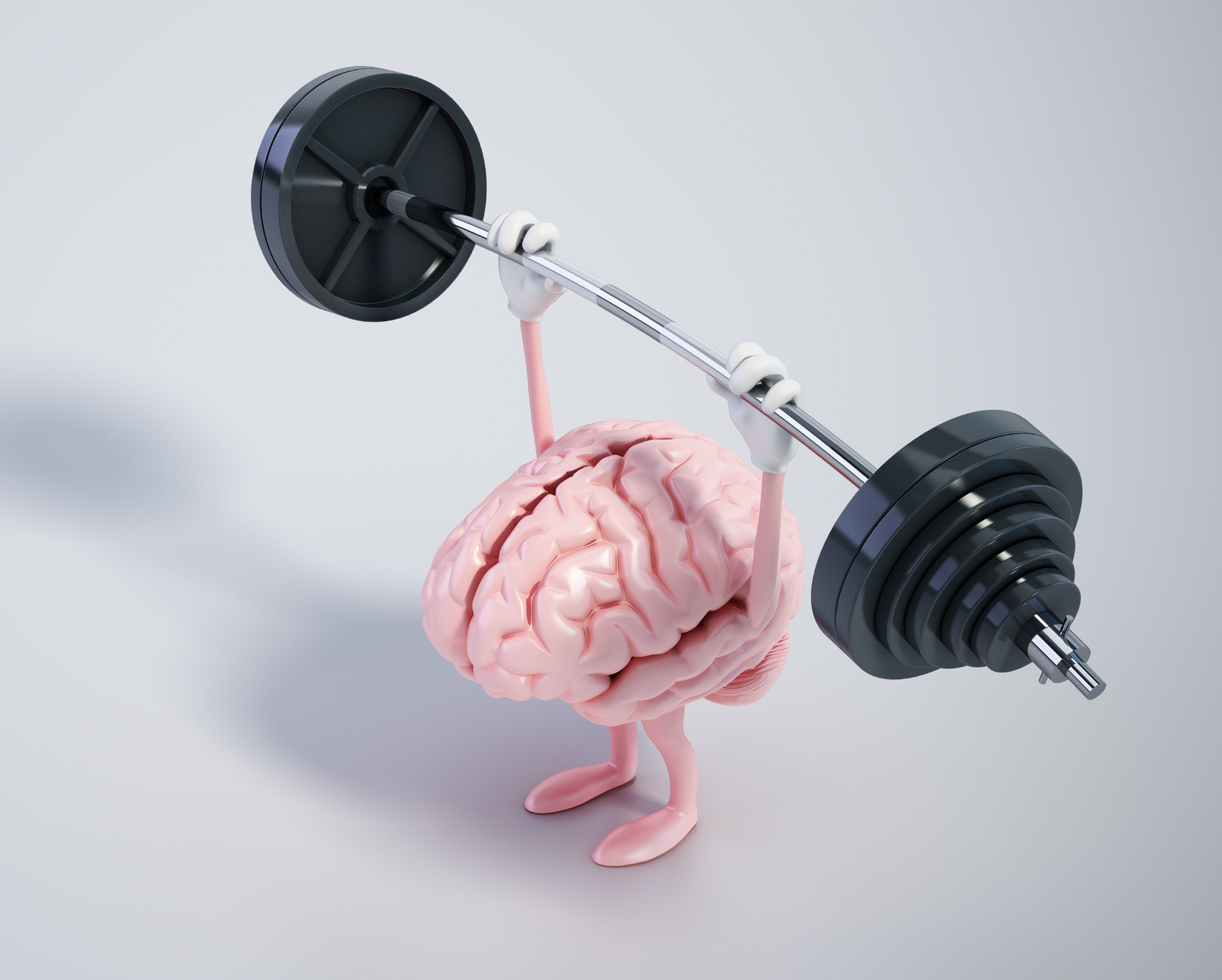
Cognitive Behavioral Therapy (CBT)
Cognitive Behavioral Therapy (CBT) is a structured, evidence-based approach that focuses on identifying and changing negative thought patterns and behaviors that contribute to emotional distress. By helping you understand the connection between your thoughts, emotions, and actions, CBT empowers you to reframe unhelpful thinking and develop healthier coping strategies.
Whether you’re struggling with anxiety, depression, stress, or self-esteem issues, CBT offers practical tools to challenge irrational beliefs, reduce emotional overwhelm, and promote positive behavior change. Sessions are goal-oriented and collaborative, helping you build long-term skills for emotional resilience. CBT is widely used and effective for individuals of all ages, making it one of the most trusted and results-driven therapies available today.

Dialectical Behavior Therapy (DBT)
Dialectical Behavior Therapy (DBT) is a specialized form of cognitive-behavioral therapy designed to help individuals who experience intense emotions, impulsive behaviors, or difficulty in relationships. Originally developed to treat borderline personality disorder, DBT is now widely used for mood disorders, self-harm, and emotional dysregulation.
The therapy combines change-oriented strategies with acceptance practices, emphasizing four key skill areas: mindfulness, distress tolerance, emotional regulation, and interpersonal effectiveness. DBT helps you stay present in the moment, manage emotional storms, and build stronger, healthier relationships. Through a mix of individual therapy, skills training, and coaching, DBT supports you in finding balance between acceptance and change, creating space for healing and growth.

Acceptance and Commitment Therapy (ACT)
Dialectical Behavior Therapy (DBT) is a specialized form of cognitive-behavioral therapy designed to help individuals who experience intense emotions, impulsive behaviors, or difficulty in relationships. Originally developed to treat borderline personality disorder, DBT is now widely used for mood disorders, self-harm, and emotional dysregulation.
The therapy combines change-oriented strategies with acceptance practices, emphasizing four key skill areas: mindfulness, distress tolerance, emotional regulation, and interpersonal effectiveness. DBT helps you stay present in the moment, manage emotional storms, and build stronger, healthier relationships. Through a mix of individual therapy, skills training, and coaching, DBT supports you in finding balance between acceptance and change, creating space for healing and growth.

Rational Emotive Behavior Therapy (REBT)
Rational Emotive Behavior Therapy (REBT) is one of the first forms of cognitive-behavioral therapy, focusing on identifying and challenging the irrational beliefs that often lead to emotional suffering. It’s based on the principle that our thoughts—not external events—are what shape our emotional responses.
In REBT, you’ll learn to uncover core beliefs that may be unrealistic or overly rigid, such as “I must be perfect” or “Everyone must approve of me.” By replacing these with rational, balanced thinking, you can reduce anxiety, anger, guilt, and self-doubt. REBT is direct, action-oriented, and empowering, equipping you with lifelong tools to manage setbacks, navigate conflict, and respond to challenges with clarity and confidence.

Eye Movement Desensitization and Reprocessing (EMDR) for Stress and PTSD
Eye Movement Desensitization and Reprocessing (EMDR), an evidence-based therapy is specifically designed to treat stress, trauma, and Post-Traumatic Stress Disorder (PTSD). EMDR helps individuals process and heal from disturbing life experiences that continue to impact their mental health. During EMDR sessions, clients focus on traumatic memories while simultaneously experiencing bilateral stimulation, such as eye movements or taps. This process allows the brain to reprocess traumatic information, reducing the emotional intensity and leading to resolution and healing. EMDR is effective in alleviating symptoms of PTSD, including flashbacks, nightmares, and hypervigilance, as well as addressing anxiety, depression, and stress related to traumatic experiences. At SS Mental Health, a safe and supportive environment is provided to clients to work through their trauma and achieve lasting relief from distress.

Mindfulness-Based Cognitive Therapy (MBCT)
Mindfulness-Based Cognitive Therapy (MBCT) integrates cognitive therapy principles with mindfulness practices to prevent the recurrence of depression and anxiety. By fostering awareness of negative thought patterns and cultivating mindfulness, MBCT helps individuals disengage from rumination and develop a healthier relationship with their thoughts and emotions. At SS Mental Health, our MBCT programs are designed to support clients in managing stress, reducing symptoms of depression, and enhancing emotional well-being. Whether you’re looking to prevent relapse or seeking to improve your mental health, MBCT offers a compassionate and effective approach to healing.

Mindfulness-Based Stress Reduction Therapy (MBSR)
Mindfulness-Based Stress Reduction (MBSR) is a therapeutic approach that combines mindfulness practices with stress management techniques. MBSR helps individuals become more aware of their thoughts, emotions, and bodily sensations, allowing them to respond to stress with greater calm and clarity. Through meditation, breathing exercises, and body awareness practices, MBSR reduces stress, anxiety, and depression while improving overall well-being. At SS Mental Health, MBSR is designed to help clients cultivate mindfulness in their daily lives, leading to a more balanced and fulfilling life. Whether you’re dealing with chronic stress or seeking to enhance your mental well-being, MBSR offers a powerful path to inner peace and resilience.

Marital and Family Therapy
Marital and family therapy offers a safe, structured environment to resolve conflicts, improve communication, and strengthen relationships. Couples counseling addresses marital challenges through approaches like Traditional Behavioral Couple Therapy (TBCT) and Integrative Behavioral Couple Therapy (IBCT), focusing on constructive problem-solving and emotional connection. Family therapy is designed to reduce criticism, tension, and misunderstandings, fostering a harmonious family dynamic. These therapies are ideal for couples navigating conflicts, families experiencing high stress, or individuals seeking to rebuild trust and connection with loved ones. The emphasis is on fostering empathy, understanding, and shared growth.

Psycho-Dynamic Therapies
Psycho-dynamic therapies delve into the unconscious mind to uncover underlying factors contributing to mental health challenges. Through techniques like free association, transference analysis, and dream interpretation, these therapies address disorders such as depression, anxiety, and eating disorders. By exploring past experiences and emotional conflicts, clients gain deeper insights into their behaviors and thought patterns. This self-awareness facilitates emotional healing and promotes healthier relationships. Psycho-dynamic therapies provide a transformative journey of self-discovery, making them an effective choice for individuals seeking long-term personal growth and resolution of deep-seated issues.

Humanistic-Experiential Therapies
Humanistic-experiential therapies prioritize creating a supportive and empathetic environment where individuals feel empowered to explore their thoughts and emotions. Rooted in principles of self-awareness and personal growth, these therapies are effective in addressing challenges like depression, anxiety, trauma, social dysfunction, and marital difficulties. Techniques such as client-centered therapy and Gestalt therapy encourage individuals to embrace their potential and achieve a sense of fulfillment. By fostering a deeper understanding of oneself, humanistic-experiential therapies enable clients to navigate life’s challenges with confidence and resilience, ultimately leading to transformative healing.

Art Therapy
Art therapy at SS Mental Health offers a creative and expressive approach to healing. Through the use of art materials and techniques, clients are encouraged to explore their emotions, thoughts, and experiences in a non-verbal way. Art therapy can be particularly beneficial for individuals who struggle to express themselves through words or who are dealing with trauma, anxiety, or depression. A supportive environment is provided where clients can engage in the creative process and gain insights into their inner world. Art therapy fosters self-expression, enhances emotional well-being, and promotes personal growth.

Grief Therapy
Grief counselling at SS Mental Health provides support for individuals coping with loss. Whether you’ve lost a loved one, a job, or a significant relationship, a compassionate space is provided to process emotions and find healing. We understand that grief is a deeply personal experience, and our goal is to help you navigate this difficult time with care and understanding. Through individual therapy, we provide tools and strategies to cope with grief, honour your loss, and eventually find a path forward.

Couples Therapy and Counselling
At SS Mental Health, therapy and counselling is conducted for individuals and couples facing challenges in their marriage or relationship. Clients are guided and counselled to improve communication, resolve conflicts, and strengthen their emotional connection. Marriage therapy also helps to address mental health conditions such as depression and anxiety which impact the relationship. Whether you’re dealing with trust issues, communication breakdowns, infidelity or mental health conditions, counselling and therapy will provide a safe and supportive space to work through these challenges. Our goal is to help you build a stronger, healthier relationship and develop the skills needed to maintain it.
“Anything that’s human is mentionable, and anything that is mentionable can be more manageable. When we can talk about our feelings, they become less overwhelming, less upsetting, and less scary.”
― Fred Rogers